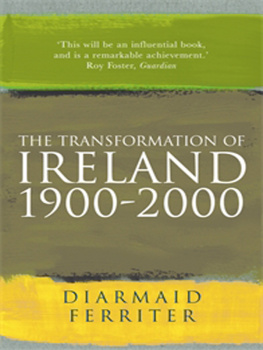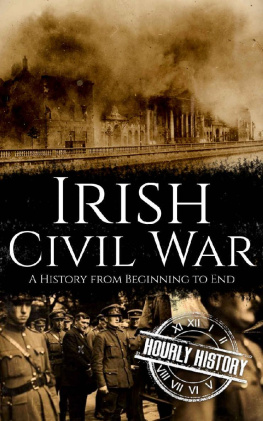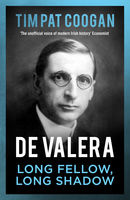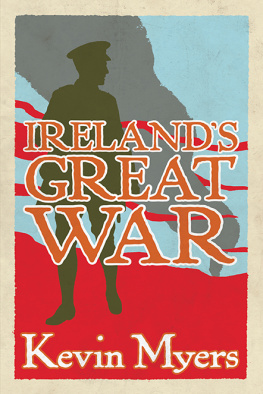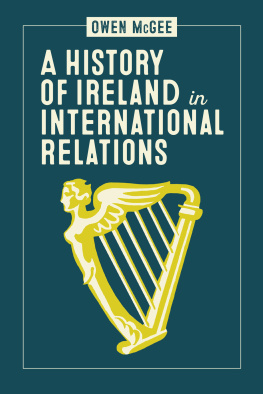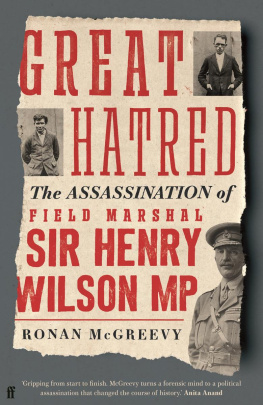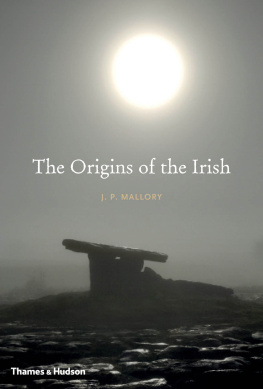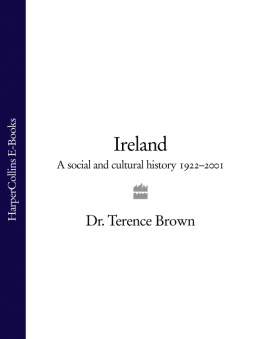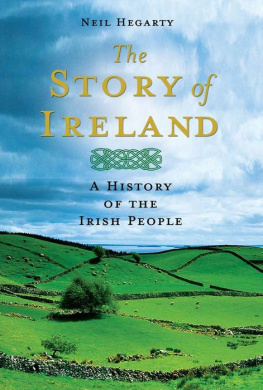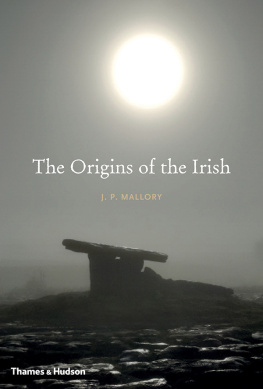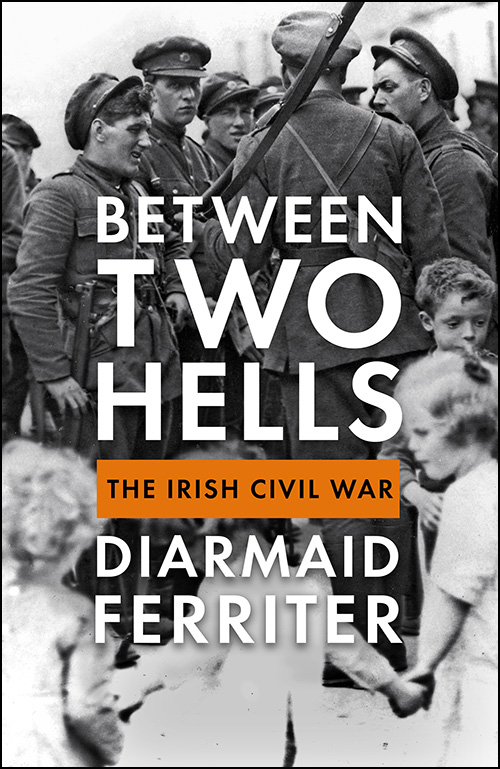Contents
Guide
BETWEEN TWO HELLS
ALSO BY DIARMAID FERRITER
The Border: The Legacy of a Century of Anglo-Irish Politics
On the Edge: Irelands Offshore Islands: A Modern History
A Nation Not a Rabble: The Irish Revolution, 191323
Ambiguous Republic: Ireland in the 1970s
Occasions of Sin: Sex and Society in Modern Ireland
Judging Dev: A Reassessment of the Life and Legacy of Eamon de Valera
The Transformation of Ireland 19002000
BETWEEN TWO HELLS
THE IRISH CIVIL WAR
DIARMAID FERRITER

First published in Great Britain in 2021 by
Profile Books Ltd
29 Cloth Fair
London
EC1A 7JQ
www.profilebooks.com
Copyright Diarmaid Ferriter, 2021
1 3 5 7 9 10 8 6 4 2
Typeset in Garamond by MacGuru Ltd
Printed and bound in Great Britain by
Clays Ltd, Elcograf S.p.A.
The moral right of the author has been asserted.
All rights reserved. Without limiting the rights under copyright reserved above, no part of this publication may be reproduced, stored or introduced into a retrieval system, or transmitted, in any form or by any means (electronic, mechanical, photocopying, recording or otherwise), without the prior written permission of both the copyright owner and the publisher of this book.
A CIP catalogue record for this book is available from the British Library.
ISBN 978 1 78816 174 9
eISBN 978 1 78283 510 3
Dedicated with love to my parents, Vera and Nollaig
INTRODUCTION: FAITH, REASON AND BETRAYAL
In September 1922, at the height of the Irish Civil War, Eamon de Valera sought to explain to a confidante, Mary MacSwiney, why he could not share her uncompromising republicanism:
Reason rather than faith has been my master I have felt for some time that this doctrine of mine ill fitted me to be leader of the republican party nature never fashioned me to be a partisan leader For the sake of the cause I allowed myself to be put into a position which it is impossible for one of my outlook and personal bias to fill with effect for the party every instinct of mine would indicate that I was meant to be a dyed-in-the-wool Tory, or even a Bishop, rather than the leader of a revolution.
De Valera was the president of Sinn Fin and the most high-profile figure to oppose the acceptance of a compromise Anglo-Irish Treaty with Britain that brought an end to the War of Independence and created a twenty-six-county free-state dominion rather than the desired Irish Republic. Yet he was clearly struggling to make common cause with those on the same side of the Treaty divide as him, but who keep on the plane of Faith and Unreason and maintain that position consciously.
As a conflict, the civil war was small-scale, but the rhetoric it generated was grandiose. Fought between two blocs of the republican movement over a treaty that had fairly broad public support, it was coloured by regional disparities, the creation of a new National Army by the leaders of the new pro-Treaty provisional government, and a recalcitrant Irish Republican Army (IRA), particularly strong in Munster and labelled the Irregulars by its opponents, who were increasingly forced to rely on guerrilla tactics. As a military contest it was almost over by the end of 1922. Resulting in the region of 1,300 fatalities, it has garnered the labels Brother Against Brother and Green Against Green. The challenge at its centenary is to discard that hammer to do justice to its various contours and colours.
De Valeras despondent words in 1922 seemed to suggest a vindication of the assertion earlier that year of his nemesis in London, Winston Churchill, secretary of state for the colonies and one of the negotiators of the Treaty, that Mr de Valera may gradually come to personify not a cause but a catastrophe. He added ominously that the provisional government seeking to implement the Treaty must assert itself or perish and be replaced by some other form of control. And could the Irish general election that same month, during which pro-Treaty candidates prevailed, be seen as fair and free, given the lingering British pressure?
De Valera, Churchill and Collins were central to the gestation of Irelands civil war; two of them not only survived this turbulent period but went on to achieve iconic status, seen by their supporters twenty years later when ensconced in power as representing the destiny of their respective nations. Collins, killed during the civil war at the age of thirty-one, became its most high-profile victim.
As Collins came into his own in the aftermath of the signing of the Treaty, de Valera experienced disdain both from anti-Treaty militants, who distrusted what they regarded as his moderation, and from his pro-Treaty opponents, who regarded him as dangerously subversive. It was this falling between stools that created the greatest dilemma of his sixty-year career in politics. While he could not or would not accept the Treaty, he was also, as evidenced by the MacSwiney letter, uncomfortable with the republican purists and was floundering. Ronan Fanning has suggested this was because, having been swaddled in the comfort blanket of four years of deference and obedience, de Valera tried to chart a course too subtle [suggesting, not Irish membership of the Commonwealth, but an external association with it] to be understood by those less intellectually astute than he was.
Contemporaries were much less kind, seeing his opposition as solely about personal ambition and power rather than principle, placing the burden of compromise on his opponents shoulders an unforgivable act with deadly consequences. It was deemed especially egregious from someone who had not even deigned to be involved, as the senior Sinn Fin leader, in the Treaty negotiations.
Fannings dismissal of de Valeras opponents is, however, too sweeping, implying a lack of depth and engagement with issues that most were deeply sincere about. Nor did anti-Treatyites have a monopoly on expressions of faith; the pro-Treaty IRA officer Michael Rynne recorded in his diary I support the Treaty from conviction I cannot retract my faith. And that came at a personal cost: I stand to lose 50% of my friendships and 70% or so of my acquaintanceships. At a dance in the Mansion House in March 1922, Cathal Brugha was there and I had to cut him [off] in no uncertain manner. Brugha, who had been Sinn Fin minister for defence, was shortly to lie dead. But that both sides were still dancing, if awkwardly, in early 1922 is a reminder that the first half of that year still held out the possibility of avoiding war.
The reasons put forward for accepting the Treaty that it offered substantive independence and could be a pathway to even greater autonomy in the future, or was a pragmatic compromise in the face of a much more powerful Britain and an alternative to renewed war were persuasive to many. Others, however, were adamant that Irelands plight could not be addressed through contemporary realpolitik. Frank Gallagher, a trenchant opponent of the Treaty and an IRA Volunteer in Dublin, who spent decades after the civil war justifying the anti-Treaty side, insisted Ireland was not land or people: Ireland is something else Ireland is the dead and the things the dead would have done Ireland is spirit.
Todds son, David, who went on to have a successful career with the political party Fianna Fil, founded by anti-Treatyites in 1926, argued decades later that the civil war had little to do with ideology. The choice of sides in the war had, in most cases, little to do with politics. Often it had more to do with personality clashes, the manoeuvrings of cliques and the readiness of troops to follow individual leaders. This assessment too, seems to place the participants outside of their time, as if they were automatons, but they felt deeply; Andrews quoted the Belfast Catholic Sinn Finer and subsequent Fianna Fil stalwart Sen MacEntee: this was one of those periods when emotion overthrows reason.


